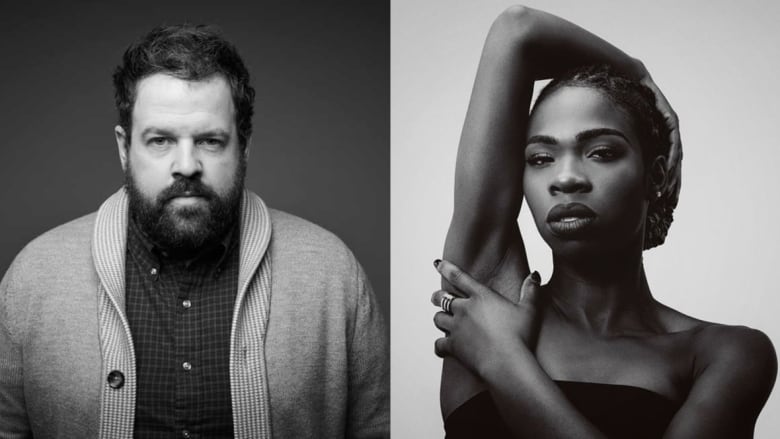How the pandemic and the movement for racial justice are re-shaping the music industry
The pandemic and the Black Lives Matter movement are making artists pause and rethink their music


Some of Canada's most influential music stars shot to fame during times of global upheaval and addressed that turmoil in their work.
Neil Young's Ohio and Buffy Sainte-Marie's Universal Soldier, for example, were written at the height of the Vietnam War. More recently, musicians like Shawnee, Jeremy Dutcher and Iskwe have risen to prominence for their songs highlighting historical injustices and violence against Indigenous people in Canada.
However, the pandemic has introduced an entirely new challenge for artists: countless tours and gigs were cancelled and long-awaited albums had their release dates postponed. The situation has left musicians feeling the financial pinch in an industry that already provides only precarious livelihoods to most of its artists.
Musicians like Juno award-winning folk artist Donovan Woods, COVID-19 have also had to reconsider releasing music that didn't seem right to publicise during a global pandemic.
"My stock and trade, the thing I love to write about, is the minutiae of human relationships," Woods said. "It feels strange to be writing about relationships and to be asking for people's attention for that type of thing when we're in the middle of a pandemic and the most significant human rights movement of our life."
Haviah Mighty, a Toronto-based Black female rapper, has also been trying to figure out how her music might be affected by the sweeping changes transforming our society and way of life right now. Last year, she won the Polaris Music Prize for her album, 13th Floor, an exploration of the anti-Black racism she and so many others have experienced. It was the first time a rap artist has won the prestigious award.
"I could never have brought myself to think that I could win something like the Polaris Prize, speaking about the kinds of things that I am in my music," Mighty told The Sunday Edition's guest host Laurie Brown.
The title track of that award-winning album, Thirteen, examines the legacy of systemic racism dating back to before the creation of the Thirteenth Amendment to the United States Constitution in 1865, which formally ended slavery — except as punishment for a crime. Mighty says that although the lyrics have an American focus, the same message applies to Canada.
"I've been told so many times in this country that my experience is not real, that racism is not prevalent here," she said. "I was trying to write a song that would be impactful for not only Black people that have experienced what I've experienced, but people that don't know the history that tell themselves: 'Oh, that doesn't impact my friends and family here in Canada.'"
"But I resonate largely with so many of the details that are in the song and the perception that is left behind, and I was born and raised in Canada."
Mighty believes that the pandemic, along with the rise of the Black Lives Matter movement following the videotaped police killing of George Floyd in Minneapolis, has helped show that Canadians should be more comfortable having uncomfortable conversations about race.
"The pandemic is shifting the way all of us think," said Mighty. "Realizing that something huge can impact everybody globally, has allowed us to feel each other's pain a little bit more and connect a little bit better."
Click 'listen' above to hear the full conversation.
For more stories about the experiences of Black Canadians — from anti-Black racism to success stories within the Black community — check out Being Black in Canada, a CBC project Black Canadians can be proud of.

